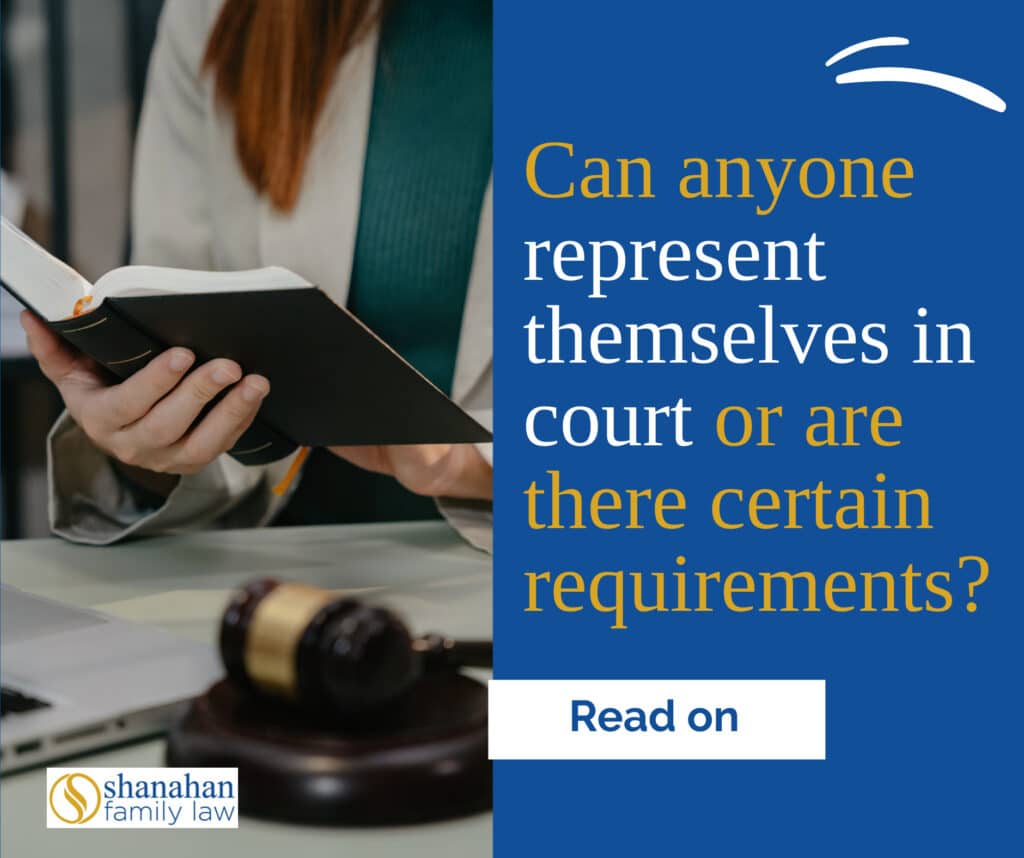The Federal Circuit and Family Court of Australia grants permission to undertake the challenge of representing yourself in Court during legal proceedings. Evidence from the early 2000s showed that the number of self-represented litigants (SRL) was increasing. This has particular implications for the court process.
What are the reasons and risks of self-representation in Australian family law cases?
Key takeaways 
- The number of people who attend Court as a self-represented litigant is increasing.
- People self-represent for many reasons, including lack of funds and thinking they can do it themselves.
- Self-representation can improve court costs and workload and delay proceedings.
- SRLs must become more familiar with family law proceedings and pursue unnecessary litigation.
- SRLs are often too emotionally involved to make a rational case and can be intimidated by the Court.
- There is much to consider when self-representing, including being prepared, remaining polite and presentable and having access to expert advice.
Why do people opt for self-representation?
There are many reasons why people decide against seeking professional legal assistance, including:
- Limited access to legal aid funding;
- Inability to afford legal representation;
- Believing they can handle the case alone;
- It simplified application processes.
The consensus is that limited legal aid and the cost of legal representation are the primary reasons. However, merging the Federal Circuit Court and Family Court, which made applications easier, had an impact.
Consequences of representing yourself in Court
Increased costs
While not well-quantified, anecdotal evidence suggests SRLs increase the Court’s costs. These added costs are associated with the following:
- The more significant workload imposed on the judicial officer, registry staff and opposing counsel;
- The greater likelihood of further litigation.
A submission from Westside Community Lawyers estimated that SRLs increased the costs of South Australia’s courts by $4.8 million.
The issues they identified include:
- Frequent court adjournments;
- Dealing with irrelevant evidence;
- Postponement of other cases;
- Hearing unmeritorious appeals.
The submission asserted SRLs delay court proceedings by about 20%.
Impairing access to justice
The difficulties faced by the Court in dealing with SRLs can cause litigants not to receive a fair outcome. Often, SRLs are too emotionally connected to the matter to provide a rational case. They often need to be aware of their rights and pursue unnecessary litigation. Not understanding proper procedure can also extend their interaction with the Court. This can cause undue stress and exacerbate an already emotionally difficult time.
People without legal training tend to find the Court intimidating. This can make them inarticulate and unable to make their case effectively. This can be a particular issue in cases involving complex subjects such as domestic and family violence.

How to approach self-representation
As with any family law matter, anyone considering self-representation should seek out-of-court solutions. The Family Court underwent significant reforms on 1 September 2021. One development is that court procedures now prioritise mediation over litigation. Utilise family dispute resolution services and create strategies to overcome conflict.
With that said, here are some tips for presenting your best case:
- Ensure your applications are correct before submission. Don’t forget any supporting documents;
- Be well-dressed and courteous in Court and always address the judge as “your honour”;
- Try to control your emotions. Deal with the facts of the case outlined in your affidavit;
- You can issue subpoenas to gather the necessary information to support your case. Ensure the subpoenas are worded correctly, or they may be invalid.
- Be civil with the opposing party.
- Get legal advice before going to Court. Even if you don’t have a lawyer in Court, they can provide valuable information to help you represent yourself effectively.
We can help
Regardless of your determination to represent yourself, you should still seek legal advice. The Family Law Act is complex and requires specialised knowledge to navigate. An experienced family lawyer can help you prepare for Court, even if they aren’t present.
Shanahan Family Law can assist you in understanding family law so you can protect your interests. Contact our office today for an initial free discovery call.

